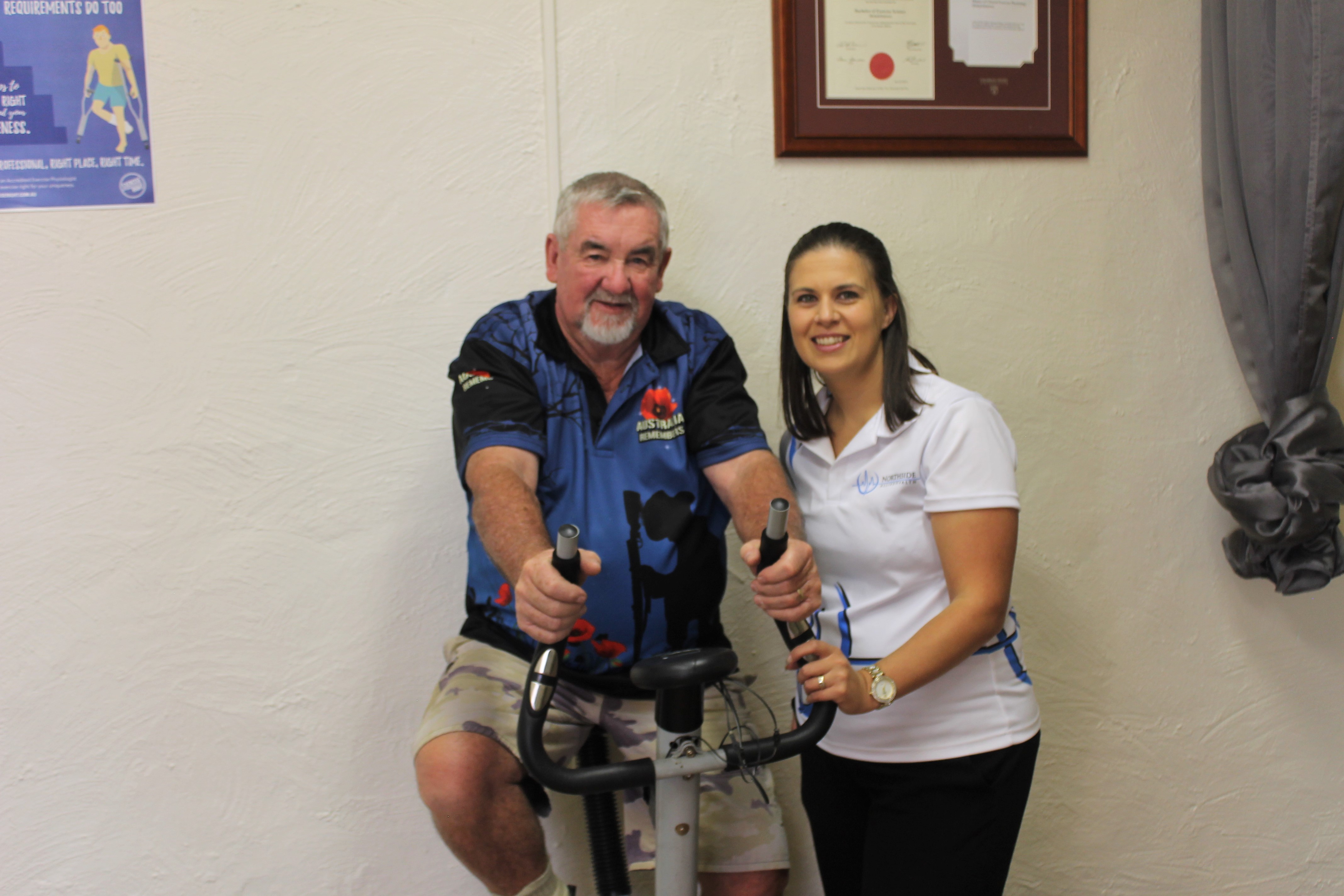Today, April 11 marks Pause for Parkinson’s Day, a day where we take a minute to try to understand a neurodegenerative disease that currently affects 10 million people worldwide.
Exercise is important for everyone to maintain a healthy lifestyle but wide spread evidence suggests that exercise is imperative for people with Parkinson’s Disease (PD) as it slows down the impairment process of the disease. Research suggests it improves physical functioning, strength, balance, gait, speed and general health and wellbeing for people with PD.
Accredited Exercise Physiologist (AEP), Alison Epton of Northside Allied Health Blue Mountains, has seen first-hand the powerful effects of exercise when treating clients with PD.
“Confidence and independence is one of the greatest results that I’ve seen come from exercise in clients with PD. With a new level of strength and stability comes a new level of self-confidence, as they can do things that they struggled with before and sometimes that is as simple as walking or opening a jar.
“With PD comes shaking and weakness. Working through the weakness and fatigue with exercise gives the strength and confidence to get through the day doing more and more things for themselves” said Ms Epton.
Client of Northside Allied Health, Alan Ham of Hazelbrook who is an avid walker agrees that since starting the strength program with Ms Epton he has seen an improvement in the symptoms of his Parkinson’s Disease.
“Yes the exercises have helped a lot with my balance”, said Alan.
Ms Epton urges the importance of modifying exercises to suit the client. “The abilities of patients vary from case to case so prescription of exercise needs to be carefully chosen for the client and not Parkinson’s Disease as a whole.
“An effective AEP needs to be able to clinically modify exercises for each patient to provide the best opportunities for the patient to improve their symptoms whilst being the voice of encouragement to get through the set backs that can sometimes arise from fatigue or weakness.
Ms Epton recommends exercises that focus on strength and gait speed including wall squats, assisted step ups, sit to stand, walking with a focus on lifting feet to improve gait, grip strength exercises, and coordination activities.
To join the cause to find a cure for Parkinson’s Disease, visit https://shakeitup.org.au/pause4parkinsons/

